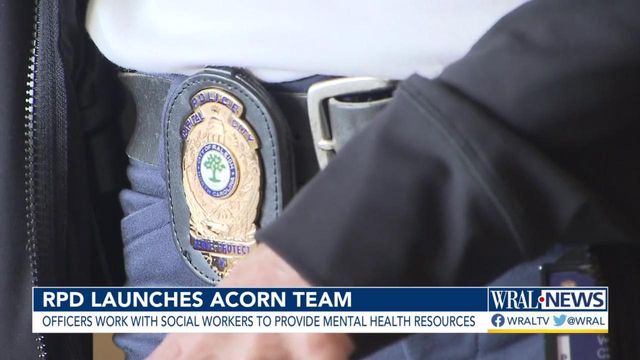Raleigh police creating new policy for de-escalating tense situations
The Raleigh Police Department held its first of six listening sessions for developing a new policy that would change how officers de-escalate tense situations.
When police encounter a person who is experiencing a mental health crisis or could be putting the community in danger, there is a timeframe when officers can work to de-escalate the situation before making the call to use more force.
The initiative to focus on this matter within the police department has been in the works for years.
"We want de-escalation to be like brusing your teeth — wake up in the morning and you just do it. That's what we want as a philosophy in Raleigh Police Department," said Officer Gartin.
In 2021, the COPS Office of the Department of Justice awarded the Raleigh Police Department with a grant to begin making some changes.
“Currently, de-escalation is addressed in our policy 1108-1, which governs the use of force ... so we wanted to expand simply from looking at de-escalation from the lens of use of force to looking at de-escalation through the lens of the value of sanctity of human life and have its own policy that goes beyond merely the use of force response to resistance,” said Lieutenant Eric Goodwin.
Goodwin is the project manager for the policy development. The draft policy he’s working on covers the expectations for de-escalation as it relates to use of force definition, office responsibilities, supervisory responsibilities and training aspects associated with the policy, and it will govern those aspects of de-escalation.
“An aspect of this initiative is training. So we will provide training for the department for sworn officers and a number of our unsworn that deal with the public directly,” he explained. “What we want to do is provide a training that reiterates our values, both to our officers, you know, just so that we have an understanding again of what's expected, but also to be reminded of who we are.”
This year, Raleigh has reported a number of officer-involved shootings, which have only amplified conversations about use of force.
The most recent occurred last month, when Raleigh police faced scrutiny from the public following an incident when officers fired 30 rounds at a man they said targeted officer vehicles with Molotov cocktails.
During Wednesday night's meeting, activists and residents questioned the police department's current policies.
"When people are in crisis or moments of great frustration, what if they don't respond and what if they're experiencing a mental episode?" a speaker at the hearing asked.
The Raleigh Police Department is taking a step back to analyze exactly how its officers respond to these scenarios.
Goodwin said the Raleigh Police Department is crafting a policy that will include more training and education with a goal is to reduce the frequency or quantity of force used by police "so that when we are in the field, where possible, we are taking the appropriate time ... so we slow down this process."
Goodwin encourages people in the community to share their opinions and ideas to help shape the new program. The goal is to make a tangible difference in their day-to-day work in the field.












